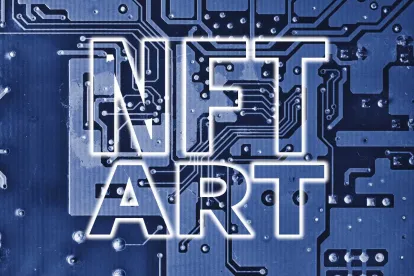In a case with clear implications for non-fungible token art-based projects, a federal jury in the case of Hermès International, et al. v. Mason Rothschild, 1:22-cv-00384 (SDNY), found in favor of fashion brand Hermès in its lawsuit concerning digital artwork consisting of images of Hermès’ Birkin handbag.
Specifically, the jury found that Rothschild was liable for trademark infringement, dilution, and cybersquatting, and rejected the defense that he was shielded by First Amendment protections. The case centered around a collection of digital images titled "MetaBirkins," each of which depicted a unique image of a blurry faux-fur-covered Birkin handbag. Rothschild used NFTs to sell such digital images to individual buyers so that each of the NFTs signified sole ownership of a particular "MetaBirkin" digital image. In addition, Rothschild employed a "smart contract" for each of the "MetaBirkin" NFTs where he retained the power to change the image, title, or other attributes associated with the NFTs.
Important to this case was the court’s earlier refusal to grant summary judgement to the defendant on its claim of protection under the First Amendment, and then equally, the jury’s verdict that the First Amendment did not bar liability. With respect to this defense, the trial court agreed with the Rothschild finding that the MetaBirkin images were artistic works and that the test set forth in Rogers v. Grimaldi, 875 F.2d 994, 1000 (2d. Cir. 1989), should apply.
The Rogers test provides that use of a trademark as part of an artistic work is protected speech unless the plaintiff can show that either (1) the use of its trademark in an expressive work was not "artistically relevant" to the underlying work, or (2) the trademark is used to "explicitly mislead" the public as to the source or content of the underlying work. In denying the Rothschild’s motion for summary judgement the court found that there was factual dispute as to whether Rothschild’s decision to center his work around the Birkin bag stemmed from genuine artistic expression or, rather, from an unlawful intent to cash in on a highly exclusive and uniquely valuable brand name. At trial, the defense apparently failed to convince the jury that Rothschild’s MetaBirkins NFTs were works of art and the plaintiff established that Rothchild’s real intention was to confusion people into thinking that his MetaBirkins NFTs were sponsored by or associates with Hermès.




 />i
/>i
